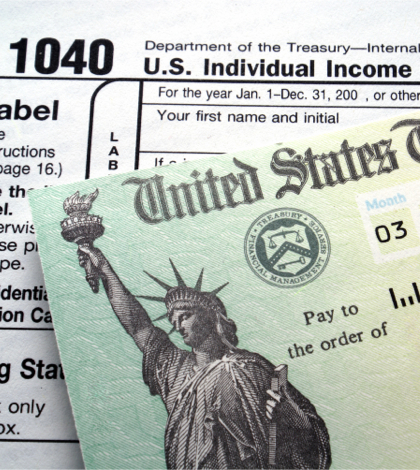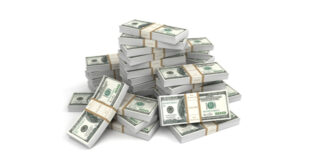His move to help the middle class, including a proposed minimum wage hike, draws criticism and praise from local economists. One thing they agree on: getting his proposals through a Republican-controlled Congress might be next to impossible.
President Obama’s move to raise taxes on the wealthiest one percent while providing tax breaks to middle class families has drawn a mixed response from economists, both nationally and locally.
The president gave a broad outline of that proposal, along with a suggested minimum wage hike, during his State of the Union speech Tuesday.
Details of his proposed tax hike – which is certain to meet stiff opposition from Republicans and some conservative Democrats – were unveiled last weekend from White House officials.
The president is proposing $320 billion in tax increases over 10 years that would target the wealthiest U.S. residents, increase capital gains taxes while providing tax cuts for middle-income earners.
He also called for a new fee on larger financial institutions, which administration officials estimate would bring in an additional $110 billion.
In his one-hour address, during which he took much of the credit for the nation’s economic recovery, Obama proposed expanding tax credits for higher education and child care, and creating $500 tax break for two-earner families.
Obama called for equal pay for men and women, and he called on Congress to pass a minimum wage hike. Democrats have tried to raise the federal minimum wage from its current $7.25 an hour to $10.10 an hour, but Republicans have blocked that idea, saying it will force many businesses to lay off workers.
Obama, who declared that “the shadow of crisis has passed,” also outlined ways to simplify how taxpayers apply for education and child care credits. That would include increasing the top child care credit to $3,000, according to published reports.
“We have risen from recession freer to write our own future than any nation on earth,” Obama told the joint session of Congress. “Will we accept an economy where only a few of us do spectacularly well? Or will we commit ourselves to an economy that generates rising incomes and chances for everyone who makes the effort?”
The president’s larger goal is clear: derive more tax revenue from investment income, specifically capital gains and dividends, both of which are taxed at a lower rate than regular earnings. Because the wealthy derive more of their income from investments, they would take the biggest hit if a higher tax rate was placed on that kind of income.
Obama wants to raise the capital gains tax on the highest-earning Americans to 28 percent, up from 20 percent, its current level. He also wants to close a loophole that allows capital gains derived from an inheritance to go untaxed, according to White House officials.
Reaction to the president’s proposals fell largely along party lines.
“What you’re seeing here is dedicated middle-class tax relief to get at the problem of wage stagnation,” Harry Stein, director of fiscal policy at the Center for American Progress, a left-leaning think tank in Washington, D.C., told Bloomberg News.
But Sen. Orrin Hatch, R-Utah, sees Obama’s proposed tax program as nothing less than an assault on the U.S. business community, much of which is still dealing with fallout from the recession.
“Slapping American small businesses, savers and investors with more tax hikes only negates the benefits of the tax policies that have been successful in helping to expand the economy, promote savings and create jobs,” said Hatch, chairman of the Senate Finance Committee, in a statement released two days before the president’s State of the Union address, when details of President Obama’s tax proposal were leaked. “The president needs to stop listening to his liberal allies who want to raise taxes at all costs and start working with Congress to fix our broken tax code.”
One local economist agreed, saying Obama’s proposed tax hikes on high earners could spell the end of some small businesses, at least in California.
“I think it’s a horrible idea,” said Jay Prag, professor of economics and finance at the Drucker School of Management at the Claremont Colleges. “The rich, as Obama defines it, carries almost all of the tax burden in the country. Is it fair to expect them to pay more?”
Should it pass, Obama’s tax hike could strike particularly hard in California, which has the highest high-end income tax rate – 12.5 percent – of any state in the country, according to the Federation of Tax Administrators in Washington, D.C..
“California is overburdened and overtaxed as it is,” Prag said. “If taxes get too high, the rich can move their money somewhere else, and the businesses can move somewhere else. They both have the flexibility to do that. Some businesses are already doing that.”
Obama’s proposals, whatever their possible merits, aren’t likely to get through the Republican-controlled House and Senate, said Chris Thornberg, founder and principal with Beacon Economics in Los Angeles.
Thornberg predicted more stalemate during Obama’s last two years in office, but said his proposals are worth debating.
“We do have a problem with income inequality, so it does make some sense to cut taxes for the middle class,” Thornberg said. “Shifting the tax burden is a good idea, but I own a small business, and I wonder what this might do to small business.”
Should Obama somehow manage to get his tax cut through Congress, the changes could differ dramatically from state to state, said Vincent McCoy, director of the Inland Empire Small Business Development Center.
“There’s a problem with the definition of rich, ” McCoy said. “Rich in California and rich in Kansas are two different things, and 90 percent of the country considers itself middle class. Maybe there are some things in there that would be good for the middle class, but I don’t think it matters, because I don’t think he’s going to get any of it passed anyway.”
A hike in the minimum wage isn’t likely to eliminate, or even damage, many small businesses, McCoy said.
“Some small businesses already pay better wages than larger ones, like Target and Walmart, because they have a financial incentive to do so,” McCoy said. “So I don’t see [a minimum wage hike] as a problem.”
 IE Business Daily Business news for the Inland Empire.
IE Business Daily Business news for the Inland Empire.


